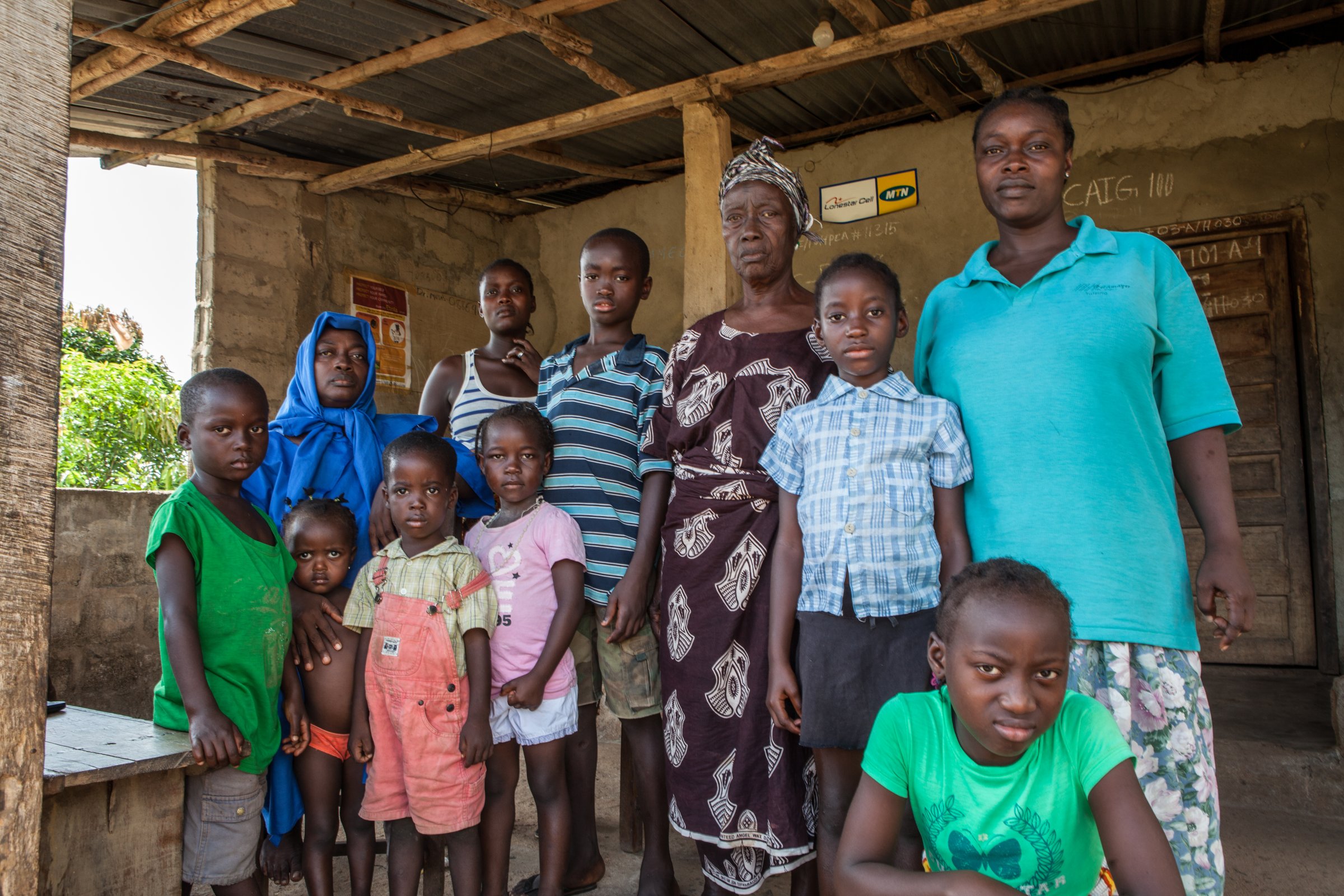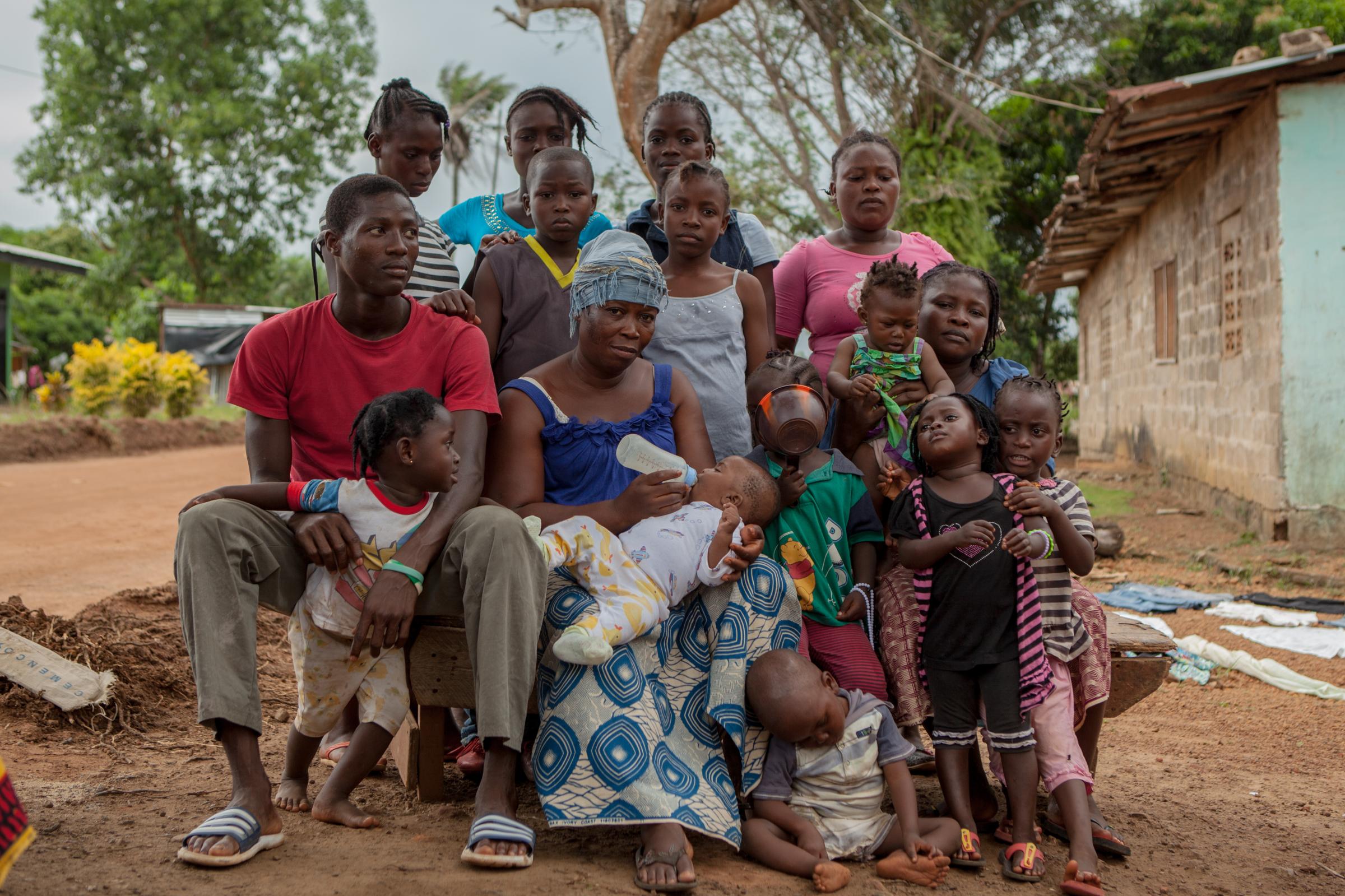
In 2015, the three Ebola-affected countries will start offering cash payments for families hit by Ebola, as well as survivors having trouble re-acclimating to society out of stigma for the disease.
Every aspect of Guinea, Liberia and Sierra Leone’s societies have taken a hit from Ebola, and the disease has shocked what were once fragile but growing economies. Public spaces are now forbidden, so markets are empty, tourists are no longer traveling into the countries and international companies have largely pulled out, including large industries like mining. The World Bank estimates the aftershock of Ebola to already weakened economies will be “devastating.”
“We are seeing a backwards slide of development of about 10 years,” says Boaz Paldi, chief of media and advocacy at the United Nations Development Programme (UNDP). “The outlook is not good. We are fearful for these countries.” That’s why instead of waiting for caseloads to reach manageable numbers, the three countries, with the help of UNDP and other partners, are laying the groundwork now for rebuilding the damaged economies. One of the first major initiatives to be rolled out in the new year are cash transfers and payments to families who no longer have breadwinners and survivors out of work. Many women in the Ebola-affected countries have taken in orphaned children of their family members or neighbors, despite having no steady income.

According to UNDP leaders, plans for the payment process are still being refined. Lists of names of affected families and survivors are being collected and coordinated for small pilot programs, starting early next year, to test the effectiveness of the payments in preparation for widespread efforts. UNDP has calculated that around $50 will keep a family of five going in the three countries with essential needs for one month, with some variations by country. The group is anticipating making monthly payments to 150-200,000 people in each of the countries.
Ultimately, the payment program may develop into a cash-for-work model, with payments in exchange for work rebuilding communities in an effort to inject cash into the local economy and enable people to earn a living.
Ideas for how to get youth involved are also being considered. In Sierra Leone, Ruby Sandhu-Rojon, the deputy director of the UNDP Regional Bureau for Africa, spoke to young people concerned that since residents can no longer go to their local markets, they are unable to buy the food they need. “So why not start a delivery company to have food delivered to the different communities? How can we provide the start-up capital for young people who want to initiative those types of activities?” says Sandhu-Rojon.
The three countries and the U.N., which launched the U.N. Mission for Ebola Emergency Response (UNMEER) earlier this year, are also looking to the private sector. On Dec. 11 the U.N. held a U.N.-Business Collaboration for Global Ebola Response meeting as a way to get the private sector involved in both the response and recovery. A panel of high-level representatives from U.N. Missions in the affected countries, the U.S., U.K., and France put out a call for help from companies in areas major like logistics. Ultimately, the greatest plea was for companies to return to the countries and invest.
Sadly, all three countries were experiencing high growth rates before the start of Ebola, after coming out of conflicts like civil war. Sierra Leone had only recently launched its “Agenda for Prosperity,” a high-level initiative to become a middle-income country by 2035. High growth rates could largely be attributed to extractive industries like mining, which have now largely decreased their production or shut down, causing a government shortfall in revenue and massive loss of employment. Remaining national resources have been reallocated to the Ebola fight.
“It’s very disheartening, because all three of these countries were on their way up,” says Sandhu-Rojon.
The hope is cash payments will be a boost to help people get by. But increasingly more support and funding will be needed from the international community and private sector to get the countries back on their feet. Whether the countries will make it back to pre-Ebola growth may be a much greater, and longer battle.
More Must-Reads from TIME
- Cybersecurity Experts Are Sounding the Alarm on DOGE
- Meet the 2025 Women of the Year
- The Harsh Truth About Disability Inclusion
- Why Do More Young Adults Have Cancer?
- Colman Domingo Leads With Radical Love
- How to Get Better at Doing Things Alone
- Michelle Zauner Stares Down the Darkness
Contact us at letters@time.com